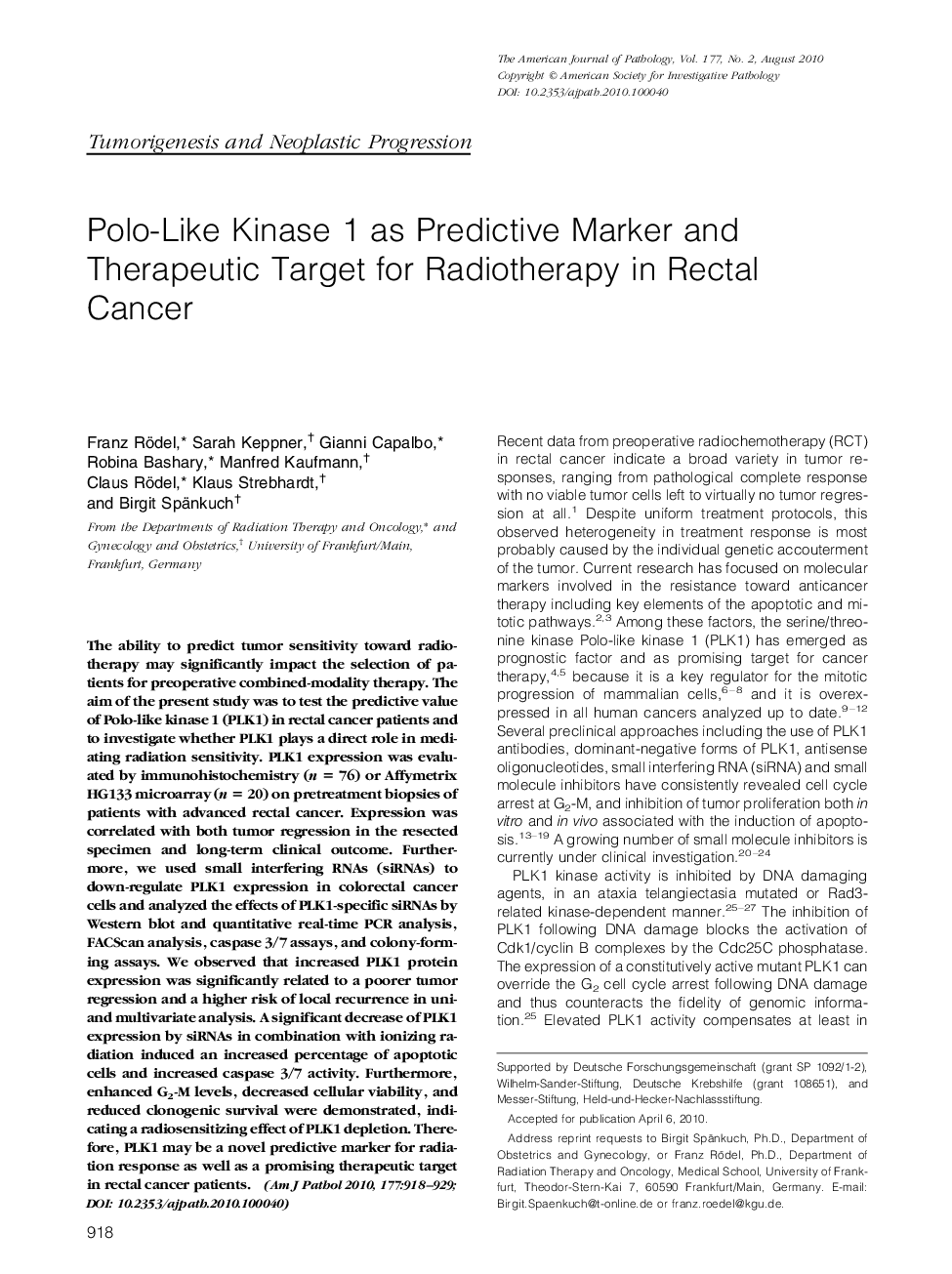| کد مقاله | کد نشریه | سال انتشار | مقاله انگلیسی | نسخه تمام متن |
|---|---|---|---|---|
| 5934987 | 1573439 | 2010 | 12 صفحه PDF | دانلود رایگان |

The ability to predict tumor sensitivity toward radiotherapy may significantly impact the selection of patients for preoperative combined-modality therapy. The aim of the present study was to test the predictive value of Polo-like kinase 1 (PLK1) in rectal cancer patients and to investigate whether PLK1 plays a direct role in mediating radiation sensitivity. PLK1 expression was evaluated by immunohistochemistry (n = 76) or Affymetrix HG133 microarray (n = 20) on pretreatment biopsies of patients with advanced rectal cancer. Expression was correlated with both tumor regression in the resected specimen and long-term clinical outcome. Furthermore, we used small interfering RNAs (siRNAs) to down-regulate PLK1 expression in colorectal cancer cells and analyzed the effects of PLK1-specific siRNAs by Western blot and quantitative real-time PCR analysis, FACScan analysis, caspase 3/7 assays, and colony-forming assays. We observed that increased PLK1 protein expression was significantly related to a poorer tumor regression and a higher risk of local recurrence in uni- and multivariate analysis. A significant decrease of PLK1 expression by siRNAs in combination with ionizing radiation induced an increased percentage of apoptotic cells and increased caspase 3/7 activity. Furthermore, enhanced G2-M levels, decreased cellular viability, and reduced clonogenic survival were demonstrated, indicating a radiosensitizing effect of PLK1 depletion. Therefore, PLK1 may be a novel predictive marker for radiation response as well as a promising therapeutic target in rectal cancer patients.
Journal: The American Journal of Pathology - Volume 177, Issue 2, August 2010, Pages 918-929